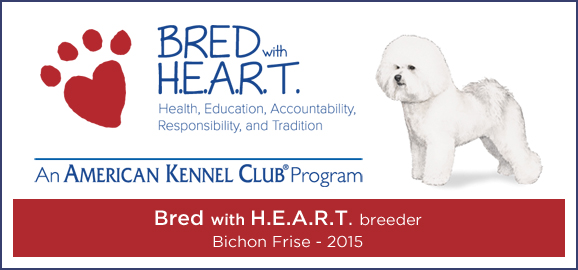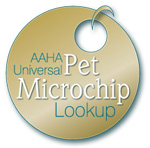Bichon Frise puppy|Bichon Frise puppies for
sale|Bichon Frise breeder|AKC Registered Bichon Frise
Please
fill out my Bichon Frise puppy application prior to calling from the number you used on the
application.
My Phone 815-745-4200 Barb
Reynolds Bichon Frise Puppy
Application
You may ONLY TEXT me at 815-275-2168 AFTER
completing the application
DO NOT CALL MY
CELL PHONE !!!!!!!!!!
You may also message me through my personal Facebook
page
https://www.facebook.com/bichonfrisepuppy

|
| |
Bichon Vaccinations
READ THIS PLEASE AND UNDERSTAND THE DANGERS OF
VACCINES AND YOUR BICHON
About Vaccines and Bichons
Anne Jones RN, BSNE
It has been the custom for many years to administer vaccines annually to all breeds of dogs.
There has also been an increase in
all breeds of autoimmune diseases, including in Bichons. Many breeders have long suspected a connection and
research
veterinarians have agreed. Therefore there have been a number of well-documented research studies in the last
5 years as to
whether annual administration of preventive vaccines is warranted.
Research has indicated that yearly vaccines are not necessary to insure immunity and that some vaccines have little
effect on
prevention of certain diseases. Recommendations have been issued suggesting that only core vaccines be given
to all dogs,
those being distemper, parvo, adenovirus and rabies. Other vaccines should be administered only on a need
basis, if at all.
Furthermore, these vaccines should only be given every 3 years or the dogs should have blood titers run to
determine if the
vaccine is needed at all. More about titers later. The Bichon Frise Club of America also recommends
that any combination
shots be separated entirely from the injection of rabies vaccines by a minimum of one month.
It seems necessary to us, the parent club responsible for overseeing the health and welfare of Bichons, to strongly
urge all
Bichon owners to be an advocate for their dogs. While many veterinarians are heeding the recommendations, far
too many
continue to vaccinate all dogs annually, regardless of health of the animal or advisories against this practice.
Therefore the
owner must take responsibility to question the habitual action, asking instead for a blood titer.
Blood titers are long established as a means of determining the level of a given substance in the blood, in this
case antibodies
present in the blood to protect the animal against disease. While a blood titer is more expensive than
vaccine, it is far less
expensive in the long run than treating a potentially fatal blood disorder or other serious disease. Now
there are machines
available to veterinary clinics that will enable some to do these tests in house rather than to send them out to
laboratories to be
run. The test done in the veterinarian’s own clinic should reduce costs considerably. But we should
never consider cost of
testing to be more important than protecting the health of the animal.
Rabies may be the most stressful vaccine of them all. However because of the increase of rabies in wild
animal populations,
these vaccines remain essential to protecting the dog from fatal illness. Some states require yearly
vaccination by law, while
others require the immunization be given every 3 years. While we feel strongly that the 3 year vaccine does
prove effective for
Bichons, which are a house breed and not a yard breed, we cannot recommend that you break the law. It is
extremely important
to the health of your Bichon that this vaccine, whether the one year or the three year, be given a minimum of one
month before or
after the combination shot. Better yet, separate them by several months to allow the immune system to recover
between
injections.
We, the BFCA Health Committee, urge you to discuss vaccines with your veterinarian so that between you, you can do
what is
best for your dog. We are basing our recommendation on reliable research as well as our own data collected on
thousands of
Bichons. Too many of them are dying too young from disease that might have been prevented had the immune
system been
stronger.
To sum up, these are our recommendations:
1.
Combo vaccination will include Canine Distemper Virus (CDV), Canine Adenovirus type 2 (CAV-2),
and Canine Parvovirus
type-2 (CPV-2), all modified live viruses (MLV) and no corona or leptospirosis. (Please note that Corona and
Adenovirus type 1
(CAV-1) are not considered necessary vaccines and that leptospirosis is needed only in locations where it is a risk
and does
have the possibility of serious adverse reactions.)
2.
Combo vaccination will be given at the age of 8, 12, and 16 weeks, one year later (about 18
months of age), and every 3 years
only if titers indicate low immunity.
3.
Rabies vaccination at the age of 5-6 months, one year later and then every 3 years.
4.
Any other vaccinations should only be considered when absolutely necessary due to circumstances
in the area the dog
resides.
Please feel free to print out this article for your veterinarian to read and as a start to a discussion with him or
her. Your
veterinarian will understand that you and the parent club choose to act as advocates for your dog and have his
(her) best
interests at heart. Our statement is based on valid research and the data that we have collected on the
health of Bichons
nationwide and around the world.
In addition, because they also can be a factor in autoimmune disease, we strongly suggest that you discuss with
your
veterinarian the use of preventive drops and medications for fleas, ticks and other pests. You can find more
information about
preventives and their effects in the article, THE WISE USE OF PREVENTIVE MEDICATIONS. We suggest that you
read the
article carefully so as to better understand the dangers involved in their use.
Please note the following web addresses for up to date information on vaccine protocols.
http://www.aahanet.org/About_aaha/vaccine_guidelines06.pdf
|
|

When using
the CHAT please enter your email address so i can still get back to you, other
wise i will not contact you without an email address. Sorry
|





